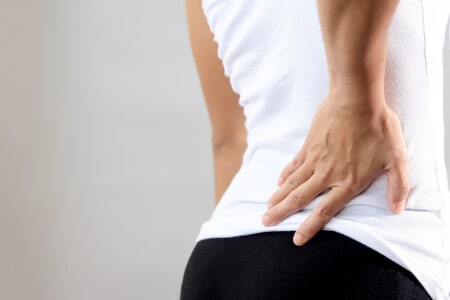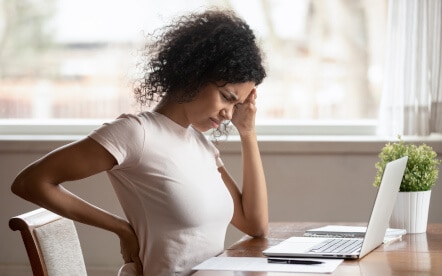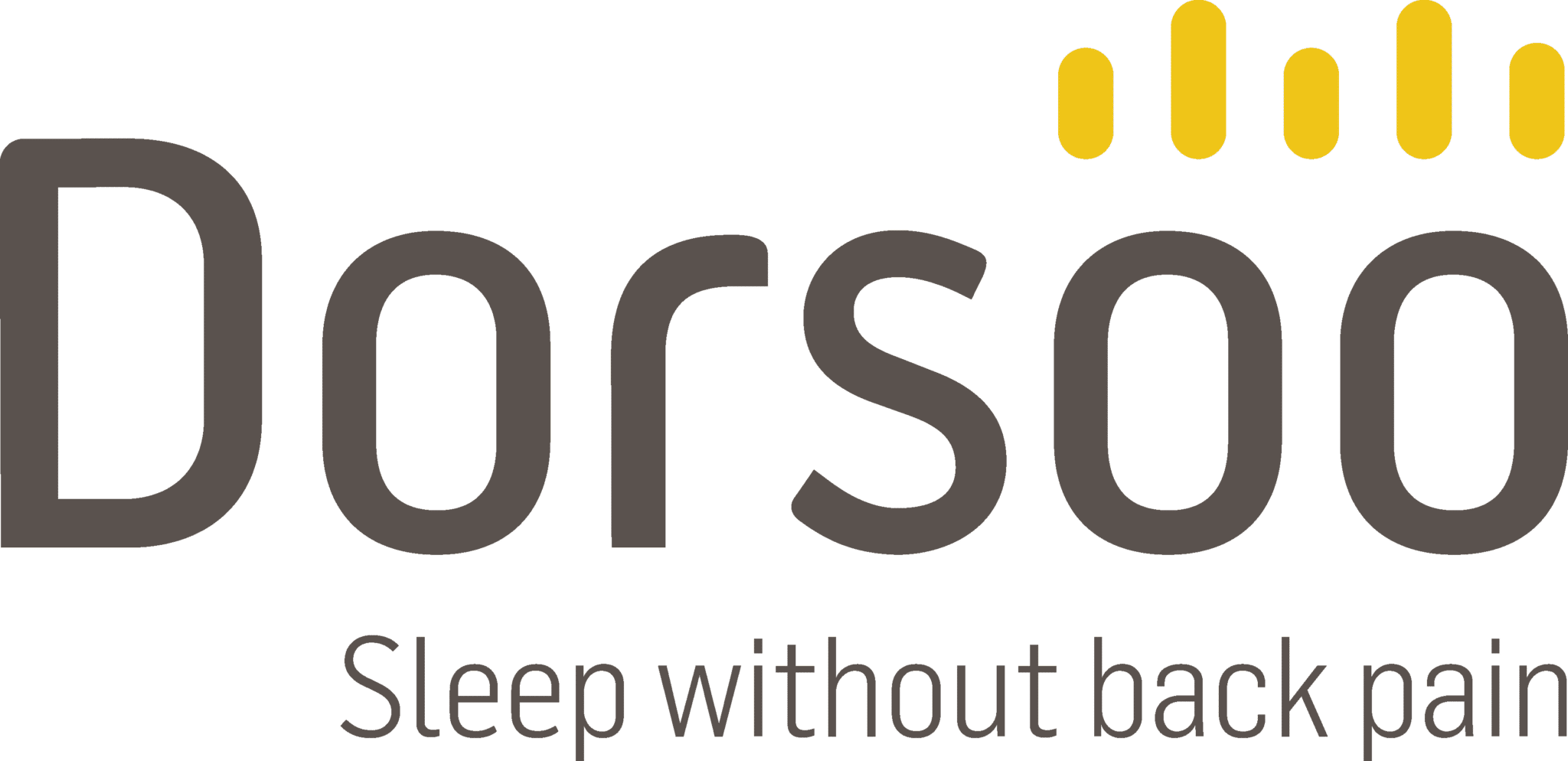Back pain due to stress: from back complaints to burnout
Back pain due to stress is a fact that we always pay special attention to with Dorsoo. It is a manifestation of stress, for which we can provide some alleviation through our sleep solutions. But the consequences of stress can go much further than simply causing back pain. The key message is to tackle the problem right at its core: preventing stress from accumulating in your body.
What actually is stress?
Stress stands for tension or pressure, but stress is not necessarily unhealthy. After all, a person needs a certain degree of stress to be able to function properly. Healthy stress is the tension you feel during an exciting moment, a job interview, an exam, a performance… Stress ensures that you can react with extra alertness and concentrate on your work. As soon as the exciting event is over, the tension decreases again.
Persistent stress is the culprit
So a stressful moment in itself is not bad. To imagine the effect of persistent stress, just try this exercise: hold a glass of water with your arm outstretched. Of course, you do not feel that. However, try to maintain that outstretched arm holding the glass of water for as long as possible. That can become quite challenging, if not unsustainable. This comparison gives a good impression of the difference between a momentary stress and persistent stress.
So stress that occurs only once in a while is generally harmless. However, if the stress is prolonged or extremely intense, it becomes unhealthy stress. It is precisely this culprit that prevents the body from adequately recovering. As soon as stress begins to show physical symptoms, we start to tense our muscles. This leads to a lack of oxygen and poor blood circulation, causing acidification in the muscles. In turn, those acidic and thus painful muscles cause us to adopt different and even unhealthy postures.
A vicious circle that leads to depression and burnout
As a result of the muscle pain, we sleep worse and consequently experience even more stress. Then that really becomes a vicious circle. If we are unable to break this cycle, it may even result in depression or burnout.
Research from 2021 and 2022 by the European statistics platform Statista shows that burnout and depression are strongly manifested in all European countries. Depending on the country, the survey recorded responses indicating that 55% to 70% of respondents have experienced symptoms of burnout or depression at some point.

Back muscles are particularly sensitive to stress
After all, the muscles that we tighten the most are those along our spine. It is the tension of those muscles that causes us to feel pain. This then takes the form of well-known ailments such as neck complaints, upper back pain, middle back pain and lower back pain.
Pain in the upper back, shoulders and neck due to stress
Stress-induced back pain, particularly in the upper back, shoulders, and neck region, can present itself in various forms. Pain in that region is usually caused by tensing the muscles during stress. This causes us to lift our shoulders, resulting in shoulder (and also neck) complaints. In many cases, upper back pain is also the result of a gradual strain on muscles and joints due to an individual’s improper work posture. This often results in recurring or even chronic pain between the shoulder blades.
Breathing can also play a role. During stressful moments, breathing from the chest often becomes more rapid and superficial. Belly breathing is then not used. As a result, the wrong breathing muscles, located at the shoulders and neck, experience increased pressure, leading to tension.
Elsewhere on our blog you will find beneficial exercises to relax the neck muscles.
Middle back pain due to stress
The chest spine – say the support structure for the rib cage – consists of vertebrae. Those are less mobile than other vertebrae. Any problem in that area manifests itself in pain and/or a stiff feeling. There may even be restrictions on movement.
Increased muscle tension in that area creates extra pressure on the spine. This causes middle back pain, also called thoracic pain. The painful area is located in the middle of the back, around the thoracic vertebrae.
Lower back pain due to stress
In any case, the lower back is inherently at risk of overload due to physical exertion, long periods of sitting, or particular sports. If stress-induced muscle tension, which further results in poor posture, is added to the equation, the threat of chronic lower back pain looms. Moreover, the lower back also bears the brunt of the tensions originating in the upper and middle back.

How to relieve stress-induced back pain
Below we list a number of tips that can help alleviate back pain caused by stress.
- The first and foremost remedy for relieving stress-induced back pain is to get moving. The muscles must remain flexible. Exercise also promotes blood flow to the muscles and creates moments of rest for the body. Activities like walking, cycling, or yoga can have a relaxing effect, but it’s not advisable to engage in overly intense exercise. After all, this can aggravate the symptoms even further.
- Breathing exercises and meditation are two specific forms of relaxation that are definitely recommended.
- To improve the blood circulation of acidified and sore muscles, massages and heat treatments are an option. Relaxation therapy, infrared therapy and heat baths can also offer relief, both for the body and the mind.
- Medication and painkillers can be a temporary solution, but their effect doesn’t last long. In addition, this does not address the underlying problems.
- A good night’s rest is indispensable to tackle back pain caused by stress. Of course, this is accompanied by a sleep system that optimally supports your body. At the same time, it is a comfortable way to work on the recovery of body and mind.
- Finally, a simple but perhaps the most important tip: take enough rest during busy periods and make time for yourself in this busy life.
To relieve stress-induced back pain, the above tips should be taken to heart daily. Dorsoo can assist in providing a night’s sleep where your back remains correctly supported, regardless of how frequently you shift your sleeping position at night or how your body changes over the years. For advice on this, consider visiting one of our advice points where a sleep specialist will explain the benefits of our ergonomic sleep systems. After all, a good night’s sleep and a healthy back go hand in hand.


